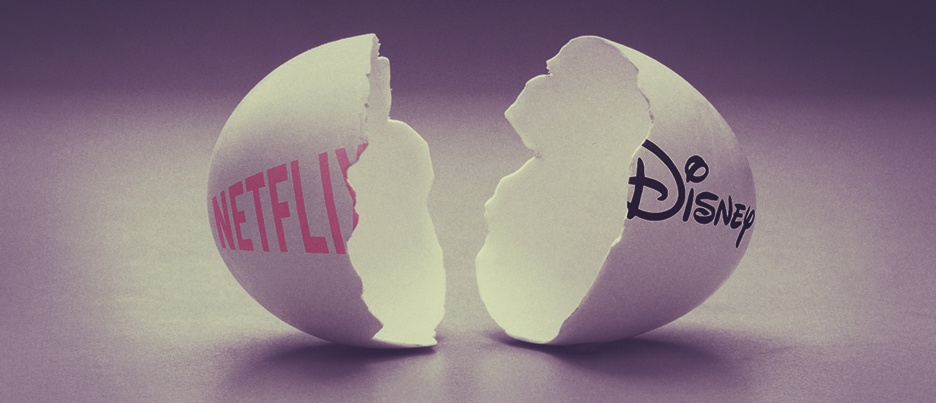Disney/Netflix: The sky is falling! Or not.

Disney’s recent decision to leave Netflix and start its own streaming services sent shockwaves from Madison Avenue to Main Street. Like the Disney character Chicken Little, people nationwide wondered aloud if the sky was falling. Not only did the split mean the undoing of one of the entertainment industry’s most powerful alliances, it underscored the immediacy of the tectonic shift that is taking place in television, as cord-cutting and unbundling accelerate at a pace not even streaming proponents would have envisioned. The move also led many industry types to wonder if Disney was moving away from the “content is king” maxim. Did this mean they felt the distribution platform was more important than the creative product? And how would this impact the wallets of Disney fans who’ll now have to shell out for one more service?
Well, IMHO, the sky isn’t falling.
In reality, the Disney move wasn’t all that shocking. In fact, analysts have long speculated that Disney might try to cut out the middleman and buy Netflix. This move was likely driven by a desire to directly distribute content from ESPN (which has been hemorrhaging money for a while now), as much as from Disney. And this won’t be Mickey Mouse’s first go at running a streaming network, either – it already has one in the UK. What’s more, Disney’s partner and ally, Netflix is quickly morphing into a competitor. The streaming service has invested heavily in original content development recently, including its own suite of Marvel TV shows (separate from the Marvel material it licenses from Disney). Netflix had just trumpeted its acquisition of comic book publisher MillarWorld shortly before the Disney announcement. It has upped the ante even more since the Disney bombshell, stealing Emmy-winning producer Shonda Rhimes (creator of Grey’s Anatomy and Scandal) from ABC (also owned by Disney!).
Other tech companies have been quick to follow suit. As reported in the New York Times last week, Google, Apple and Facebook are all beginning to spend big on original content development, as is Amazon. Clearly, it’s “game on” time… and the distance between Silicon Valley and Hollywood is now almost zero.
So where does this leave consumers and advertisers? In the immediate short-term, not that much will change. Netflix will carry the Disney material it currently has through the end of 2019, including new films coming out next year.
There will be new streaming options for sports fans in 2018 (via the ESPN app) and for Disneyphiles in 2019. Look for more to be announced in the near future, as the tech giants seek to cash in on their content. While this will likely increase costs for viewers who want everything (and pine for the days of A-to-Z cable packages), it will decrease costs for viewers who only want specific niches, such as sports or children’s programming, which is something many consumers have been asking for years. And there will be more scripted shows than ever – an estimated 500, more than double the number 6 years ago.
From the advertiser’s perspective, the proliferation of digital distribution networks makes buying TV more targeted and efficient, since consumers can be targeted using more than just Old School age- and sex data. On the flip side, the process of TV campaign planning and buying will continue to become more time-intensive and data-driven.
So, is the sky falling? I think not. It is definitely turning a different color, though.

